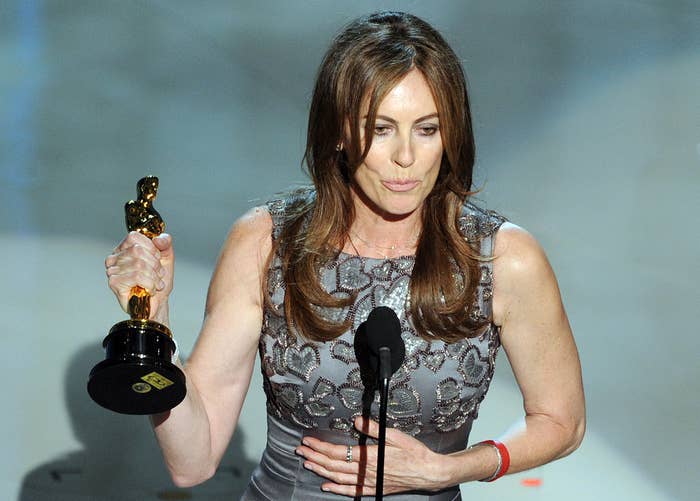
Earlier this week the American Civil Liberties Union sent letters to federal and state agencies asking for an investigation of Hollywood's hiring practices when it comes to women directors.
Through studies and interviews, the ACLU of Southern California and the national ACLU Women's Rights Project concluded that women are highly underrepresented as directors in film and television. In 2014, women directed only 7% of the 250 top-grossing films.
The ACLU letter referenced sexist remarks made toward female directors. BuzzFeed News asked women in the film and television industry to recount times they experienced gender discrimination. Some of their statements have been edited and condensed for clarity.
“If I knew you had a boyfriend I wouldn’t have hired you.”
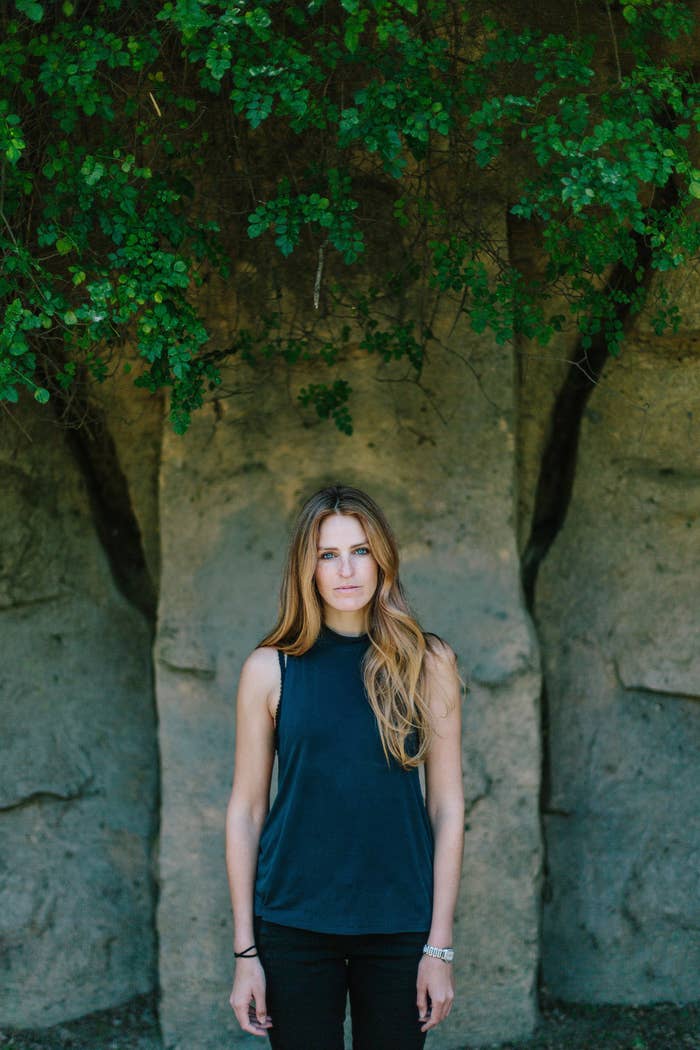
Clara Aranovich, director:
I've wanted to be a filmmaker from a very young age. I identified very early on that this was my life's passion and goal and had a clear-cut idea on how to achieve it. First I went to Dartmouth undergrad with the eventual goal to go to USC film school.
I was jarringly introduced to sexism at Dartmouth; it's an unabashedly sexist community. One really feels it in its culture thanks to the fact that it's the last Ivy League to have gone co-ed, and that wasn't until 1972. I went from Dartmouth straight into film, and in an odd way, the sexism felt familiar. As a woman, I was simply regarded as a lesser commodity.
Women are gravely underrepresented in the film industry. There's deep, pervading sexism that's hard to expose because anyone in a decision-making position is too savvy to admit to his or her own sexist feelings. The proof is undeniably in the numbers, though.
When I was producing, a superior once told me, "If I knew you had a boyfriend I wouldn't have hired you," but this type of story is a dime a dozen and not unique to film, I'm afraid. I'd taken this particular job because I needed money.
In order to climb to the point of directing my own feature, I've had to build my reel and thus take almost any directing work I can, like commercials — which are very competitive to book.
I've observed that female director friends and I have often had to lean more heavily on our past work because people in hiring positions are so goddamn terrified we won't be able to deliver.
When I finally booked my biggest commercial directing job, for a large TV/electronics company, I was paired with an older male co-director by request of the agency and client, suspiciously. I didn't complain, honestly, because I learned a lot and built a great working relationship with my co-director.
Since then, I've finally been getting commercial directing offers, but only for female-oriented content — makeup, tampons — which is fine, but the agencies are speculating what women want to see and thus those jobs tend not to lead to the most cinematic content. If I'm directing commercials, I'm just like every other director with his or her sights set on Cannes — I want to make cinematic, arresting content, like Levi's and Nike spots. Why am I being relegated to beauty lighting and uninspiring content? My previous work looks nothing like a beauty commercial, so the answer is clearly that it's because I'm female.
“I think we should fuck.”
Anonymous, director and producer:
I've been working out here in Los Angeles for five years. I came out here right after college and got to work in different aspects of film production.
Once, I was at drinks with a male producer that was set up through a colleague of mine. We were chatting about what we do, our projects, and he told me about a film he was wrapping on. I asked him, "So then what?" and he leaned back on his chair, put his hands behind his head and said, "I think we should fuck."
It was really jolting. I laughed, but he wasn't kidding. Thankfully I was able to ask for the check and remove myself from the situation. It's frustrating because you don't always know what to say on the spot and sometimes your hands are tied because if you do speak up you can put your career at risk.
Every single one of my girl friends has a very vicious story about the industry. The outrageous stories are offensive, but the little moments in between are just as bad. I'll go to a meeting as a director or an executive and men will assume I am a secretary. They won't make eye contact with me. I've sat in so many conference rooms where people look through me. That's more offensive than the larger moments. That's daily. That's so regular we forget about it.
"I didn't get hired until I could hire myself."
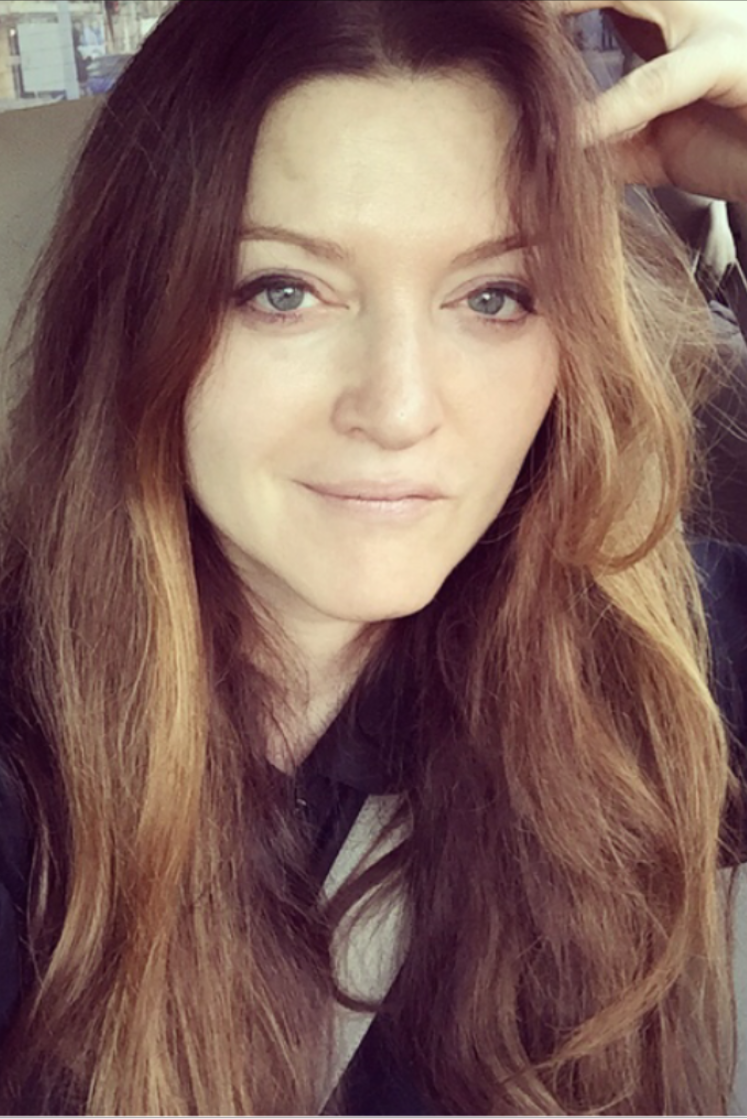
Colette Burson, director, writer, producer:
Burson created the HBO series Hung, and succeeded in her goal of hiring 50% women directors for the show.
Initially I came to Los Angeles with the dream of being hired as a TV director. But I didn't get hired until I could hire myself. I had a feature with strong reviews, a short at Sundance, and I shadowed working directors … but I quickly figured out it wasn't going to happen. There were no women on the shows I was shadowing. I couldn't find the door to the stairs. Even when I was so busy running Hung I said dammit, I'm hiring myself. I often joke that in order to play golf, I had to build my own golf course.
I will also say I believe that part of the solution has to come from the show runners. I cared about hiring female directors and I had the support of HBO. I wanted 50% of directors on 'Hung' to be female. We reached that goal by season three. To me, this was a normal thing to aim for and we achieved it. I was someone who genuinely wanted 50% women, not just the token woman.
"What's Your Name, Bro?"
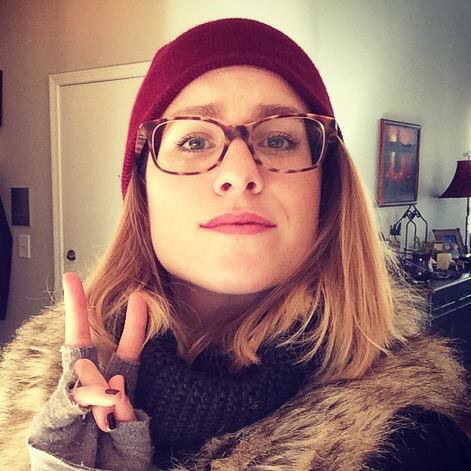
Lauren Tracy, director, co-founder of X-Factor Films:
I'm a writer and director in the film industry. On July 6, 2011 — a few years before I started a film studio called X-Factor Films that makes and distributes badass female entertainment — this happened:
At 10:42 a.m., I received a voicemail on my cell from a second assistant director (AD). He was informing "Craig" about a last-minute set location change for a shoot on Long Island. The thing is, I'm not Craig.
At first I assumed Craig's number was just one number off from mine: a common mistake. But then I realized that it was too much of a coincidence for Craig and I to have such similar numbers and both work in the film industry – especially since I have a Massachusetts area code and live in L.A. and this shoot was in NYC.
I called the AD to let him know I wasn't Craig. No answer. So I left a voicemail. Then I texted something like, "I'm also a filmmaker — just curious, what are you shooting?" He wrote, "a music video for a hip-hop artist named Maino." I googled "Maino" when a friend's name popped up — a guy from my film school named Mike.
I asked the AD if he knew Mike. The AD texted, "Yeah, he's directing."
Mike and I had recently worked together on a couple music videos in California and somehow my number got onto his call sheet. I told him to say hello to Mike for me and he responded, "I will, what's your name bro?" I laughed out loud.
"My name is Lauren."
He hadn't checked his voicemail yet. After quickly thinking about my blog on film and feminism, I realized this interaction was positive. Unconscious bias is strong in all of us. So I knew this guy would remember our interaction because he had made a mistake, an assumption about me that even I, a female director, have made about other women in the industry.
Since the ratio of men to women in the film world is so out of whack, we naturally assume that a director is a dude, because, well, statistically speaking, he is. This has become instinct, and to reverse it society has to pause and consciously consider the other option(s). The second AD finally texted, "Ok lady lol, I hope I get to work w u one of these days. I'm Dave." And I told him, "Nice to meet you."
"But they kept hiring men."
Anonymous, television and indie film director:
I interviewed on Alias, and was told that the woman who was hired the previous season was not liked so they were nervous about hiring another one.
This was many seasons and over 20 directors into the series run.
She mentioned that there were very few women directors on in the show's early years; there were no women directors in the first an second seasons. A woman directed a single episode in Season 3:
Were all the other 20-plus male directors well-liked and asked back? Of course not. But they kept hiring men. After many episodes with no women, Jennifer Garner complained, and so the producer told me he had agreed to meet and interview me.
"There's an assumption that hiring a woman is a risk."
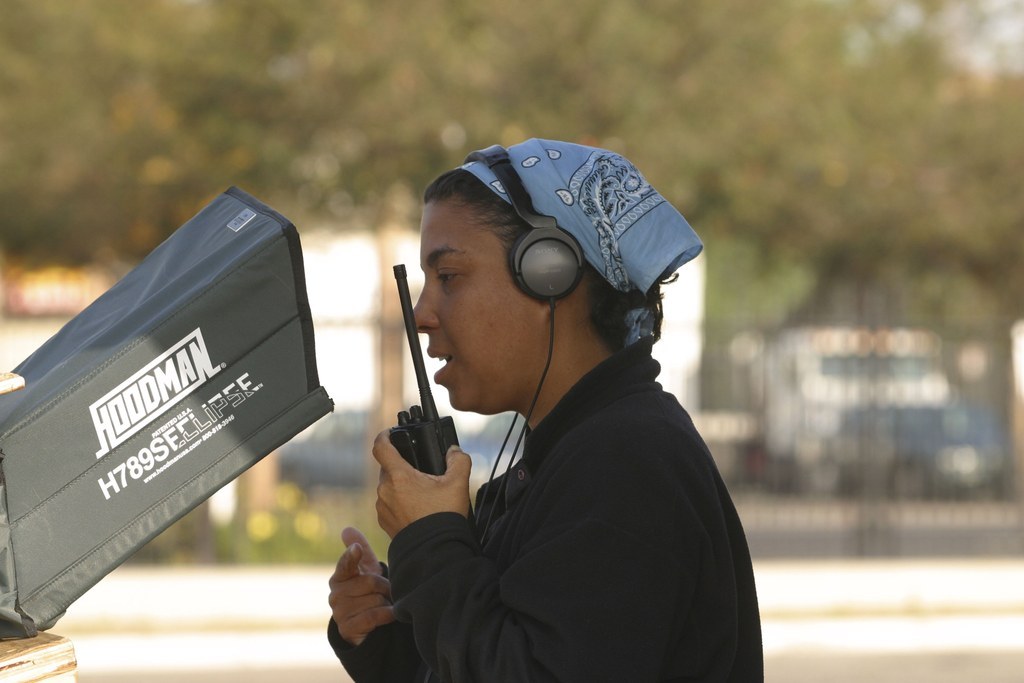
Angela Robinson, director and writer:
It's really interesting and exciting that the ACLU is doing this. I never thought of it as a civil rights issue before. It's just what me and every other woman director have to face every time we do business. It's in the air you breathe; at this point we just think, That's the way it is.
Often what happens is, a male director, especially a young male director, gets many chances. If they hire a guy, and he does his work and does an OK job, he'll get hired again. But if a woman does the same job, she won't get hired again. You have to be twice as good just to survive.
There's a myth entrenched in Hollywood: Everyone's looking for the next boy wonder — the really young brilliant guy that's going to blow everyone away. Everyone is looking for the next Quentin Tarantino.
There's incredible resistance to hiring women. People think women can't run a set, that they can't handle it.
Sometimes you'll hear someone outright say, "We don't hire women" or "We hired a woman that one time, and she did a bad job." They use that as an excuse for not hiring a woman again.
A woman who has directed several features and has more experience will not get hired; instead they'll hire the young man, who has directed one episode of not-so-great television. It's pretty sexist. Even when he doesn't do a good job, I'm sure he'll be hired again and do a mediocre job.
Hollywood is perceived to be liberal, but in reality, it's incredibly conservative. There's an assumption that hiring a woman is a risk. Sometimes women in power are really invested in maintaining the status quo. If a woman executive sticks her neck out to go against the current to champion women filmmakers, that filmmaker has to cut through barriers and noise to succeed. If she doesn't perform to the expectation the men have put in place, then they'll blame the female executive for hiring her.
It becomes a tricky political game. I used to think it was more black and white — now I think it's institutional sexism.
I've been able to work consistently, and I'm considered an exception. It's institutional quicksand. Even when you're doing well, even when you're the success story, you see the sexism that exists all around you.
I had a crew member once tell me, "When they hired you to direct this movie, me and the boys were kind of worried. We were going to have to be on point and make sure this doesn't go south. But you did a good job and I'd follow you anywhere." I was touched he said that but also dismayed that they didn't have faith in me at first just because I was a woman.
What's interesting with what the ACLU is doing is that they're looking at it as a civil rights issue. I never thought of it like that before, like the Title IX of Hollywood.
"A financier asked me to promise to not hire and surround myself with women."
Suzi Yoonessi, director:
I was up for a pilot set up at a studio. The script was tonally very similar to my past work, and was about a group of 9-year-old Girl Scouts. I was around 35 years old at the time. I've worked in the industry for 15 years and have directed an award-winning feature, numerous short films that have been screened around the world at top tier festivals, and commercial content. I lost the job to a male director who was around 22 years old and had directed one or two shorts and two music videos.
In another meeting, a financier asked me to promise to not hire and surround myself with women on set and went on a tangent about a female director he worked with who was very emotional on set. I promised to hire the best people possible for the job.
"I have given up on that dream and just want to make a decent living."
Anonymous, director:
I went to film school from 1991 to 1996 in Chicago. After I graduated, the only job I could find was secretarial. I spent four years as a secretary and finally got a job in a startup in 2000 taking pictures of electrical equipment for an online catalog.
The internet went bust eight months later and everyone was laid off. The only job after my layoff was again secretarial. Finally, in 2003, I got a job making $26,000 at a college as the AV person. I started making technical videos for the classes and labs. In 2010, I was able to create a recruitment video for the college. It was the biggest project I have ever been able to work on. At 41, I have given up on that dream and just want to make a decent living.
People fail to realize that the film and video lenses we see out of for decades is almost exclusively male-centric — by men, for men, and about men. There is a huge audience of women who cannot relate to the garbage that Hollywood is relentlessly spewing out. The industry would be well served to include more women at all stages, from script writing and project development to execution and posting.
When I was in film school, there were at most three other women in most classes of 20 to 25 people. It was isolating and depressing. Film is a collaborative medium, and it was almost impossible to get any of the boys to work on my projects. Quite a few of the guys went on to work in the industry, but none of the women.
"The sexism is so obvious, we see it every day."
Alexandra Kondracke, director and writer:
I was a Disney directing fellow in 2006, where they let you watch other people direct with the hope that they'll like you enough that they'll give you a job directing. In the entire yearlong program, I saw only two female directors. The same leadership qualities that are seen as positive for men are often considered to be negative for women. And producers use those biases as their justification not to hire women.
The idea of not hiring directors is true for writers as well. There are definitely more women writers than directors, but there are many writers rooms with only one token woman.
At the beginning of the writers' strike [Angela Robinson, whose comments are above, and I] went to a meeting of the writers guild in the Shrine Auditorium [in Los Angeles]. It was packed. Almost every writer in town was there, and there were practically no women. It was a room full of men.
The sexism is so obvious, we see it every day.
"I know it's a boys club, but I feel comfortable with it because I'm a man."
Anonymous, producer:
I was working on a film about childhood obesity with four other guys. While filming, I was constantly told, "You're gaining weight and we're doing a film about obesity, watch what you're eating. You don't want to be a hypocrite." I was also told it wasn't pleasant to watch women eat.
On set there was a lot of talking about sexual experiences — talking about hooking up, commenting on women's bodies. It was very unprofessional. How would it make them feel if I was talking about men's dicks in front of them? Probably not very comfortable.
I was also one of the only people who wasn't paid. Nobody was supposed to be paid — it was a low-budget indie film, and that wasn't part of the plan, but I returned from a few weeks' break to find out the men were paying themselves.
I was often treated like a secretary. I was expected to take notes and keep organized. Somebody has to do it, that's fine, but there has to be acknowledgement, and it's not just secretary work. I was told very clearly, in actions and in words, that I wasn't valued. One of the producers, the one who commented on my weight, once said, "I know it's a boys club, but I feel comfortable with it because I'm a man."
"It was pretty clear that the boys club had moved on without me."
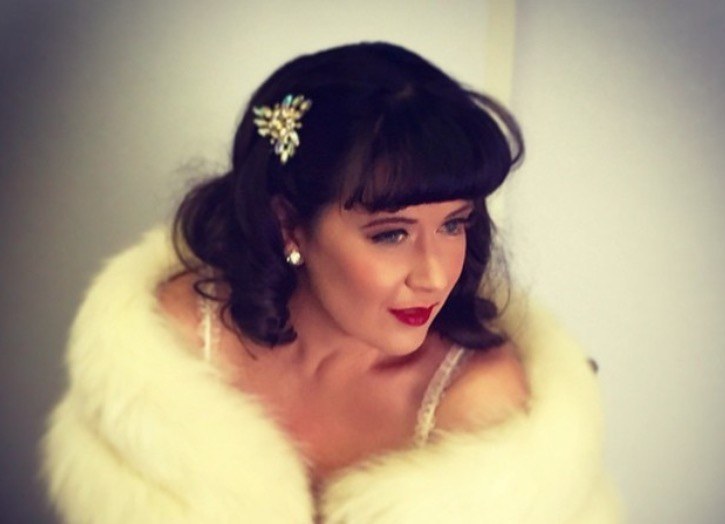
Michelle Kantor, director, co-founder of Cinefemme:
I co-founded Cinefemme in 2004 for female directors, with two other female graduate students at [San Francisco State University] in order to carve out our own niche in the industry. Back then, we recognized the enormous hurdles we faced finding jobs as directors in the industry and chose to create our own culture of inclusiveness and financial legitimacy.
Out of graduate school, I had an unsavory incident at a conference where an executive offered me career advancement in exchange for a sexual relationship. I declined. Since then, I took eight years off to raise my daughter, and have found it extremely difficult to break back in, on any level. I've worked my way up in production very quickly when I get on set, but worry that because I am authoritative that it rubs the men on set the wrong way.
Recently, I was promised a paying job, but when the time came to work, I didn't get responses back to my inquiries. It was pretty clear that the boys club had moved on without me. They didn't even respect me enough to address the promised paying job or respect me as a professional.
Kate Aurthur contributed to this report.
